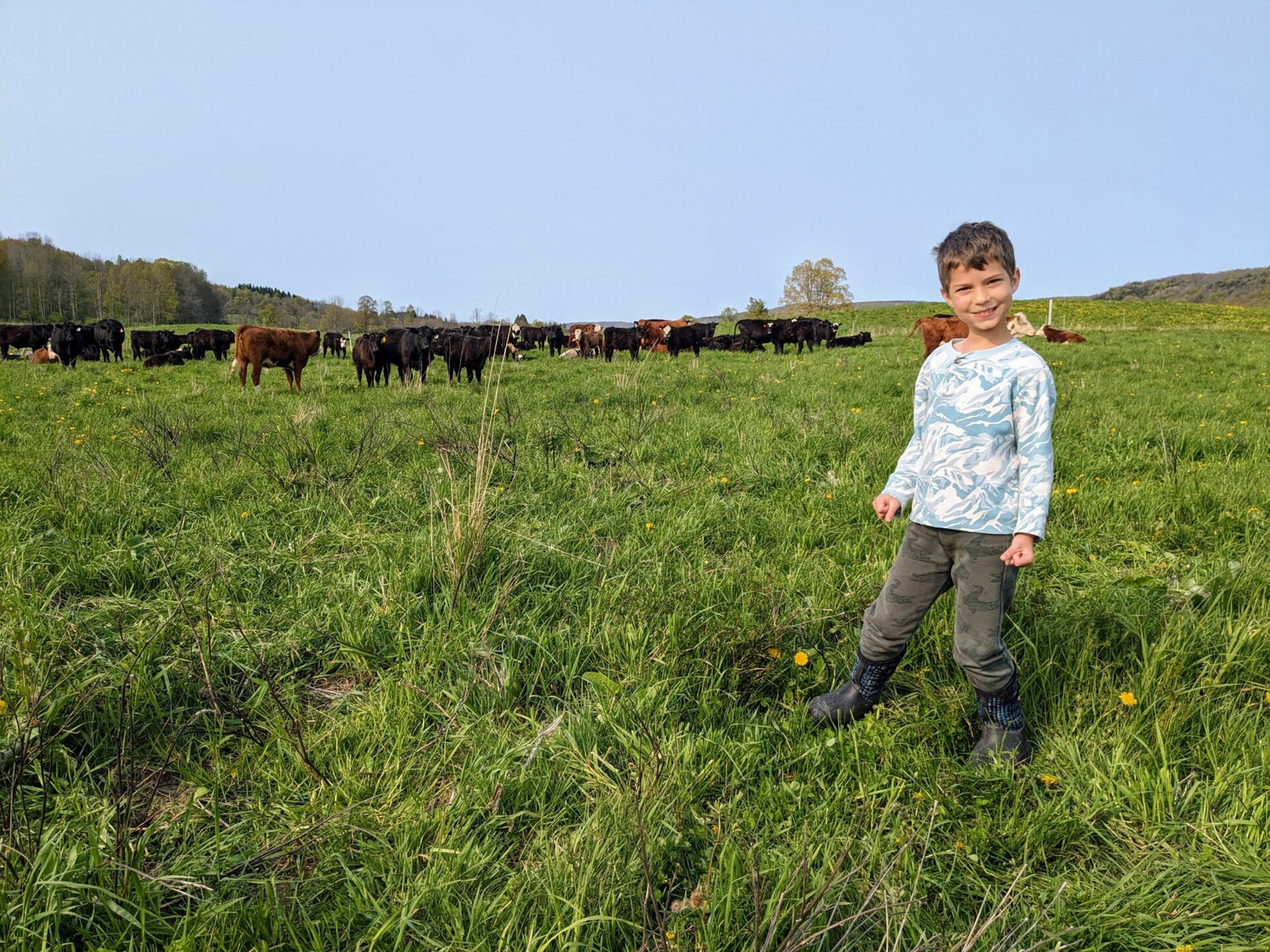This time of year the grass is sweet and green, perfect for grazing, but it grows so fast the herd can never keep up. The trouble is that pasture isn’t consistent. After the spring flush — the wonderful period of prolific growth we’re in the middle of now — it will slow down, make seed heads, and then have a second, smaller burst in early fall. The impossible ideal is to match the animals to the grass, which requires having more cows in May than in July.
The paradox of grass is that, while it’s possible to overgraze, which will stunt a field, it is also possible to undergraze. Left undisturbed, grass will grow thick, tough stems that don’t make for very good eating. Having the cows consume every blade of good grass in the spring ensures more good grass later in the summer; having grass grazed while it is still leafy encourages it to grow more leaves rather than stems, and leafy growth makes this best eating. This year part of a neighbor’s herd has joined ours, which is exciting, because it means we should have the perfect number of animals for our land. They’ll graze with our cattle for a couple months, then head home, which in theory will set us up for the rest of the year.
My son Ellis and I wanted to meet these newcomers, so we walked out towards them. The air was dry but warm, and the cows lazed in a group, ruminating or napping or soaking in the sun. As we went Ellis delivered a monologue on Percy Jackson and lizards and soccer. He spoke with out a shred of self-consciousness, perfectly confident that what he had to say was as interesting to me as it was to him.
He’s now old enough that I remember being his age, but while I suspect I was much like him, I can’t really recall the feeling of seeing the world so simply and so clearly. I can bring to mind any number of things I did, the forts I built and the books I read, but the state, what it was like to go through the world as a small boy, is more elusive. There’s an imaginative empathy I can extend to Ellis, which gives me a glimpse, however imperfect, of the world viewed through the eyes of a child, but I find it strange that the accrual of time and experience has made it impossible to extend the same empathy to my past self.
The cows approached us as we approached them. Though they had been moved onto fresh pasture a few hours earlier, though they were full, and though plenty of good feed remained, they thought we might be about to give them access to a fresh paddock, and so they wandered over to investigate. Cows are always interested in seeing if the grass is greener elsewhere.
Then one of them, reddish with a white fact, shifted suddenly. I saw a blur of brown, which I at first took to be a groundhog, but it was too small and moving too fast. It raced in spiraling, purposeless circles through the thicket of stout cow legs, which turned and lifted and stomped as it passed. When it paused for a moment I saw that it was a young rabbit.
Ellis saw it too, though I don’t think he had any appreciation for the danger it was in.
“Look at the rabbit,” he said.
“We should go so we don’t scare it more,” I said. “Hopefully it will find a hole.”
“I think it will.”
We turned back towards the gate, and the cows slowly followed. The rabbit was somewhere back in all that good, green grass, a few ounces of warm flesh and fur. The cows came far enough that they would have left it behind, but I will never know if it managed to avoid all those careless hooves.

